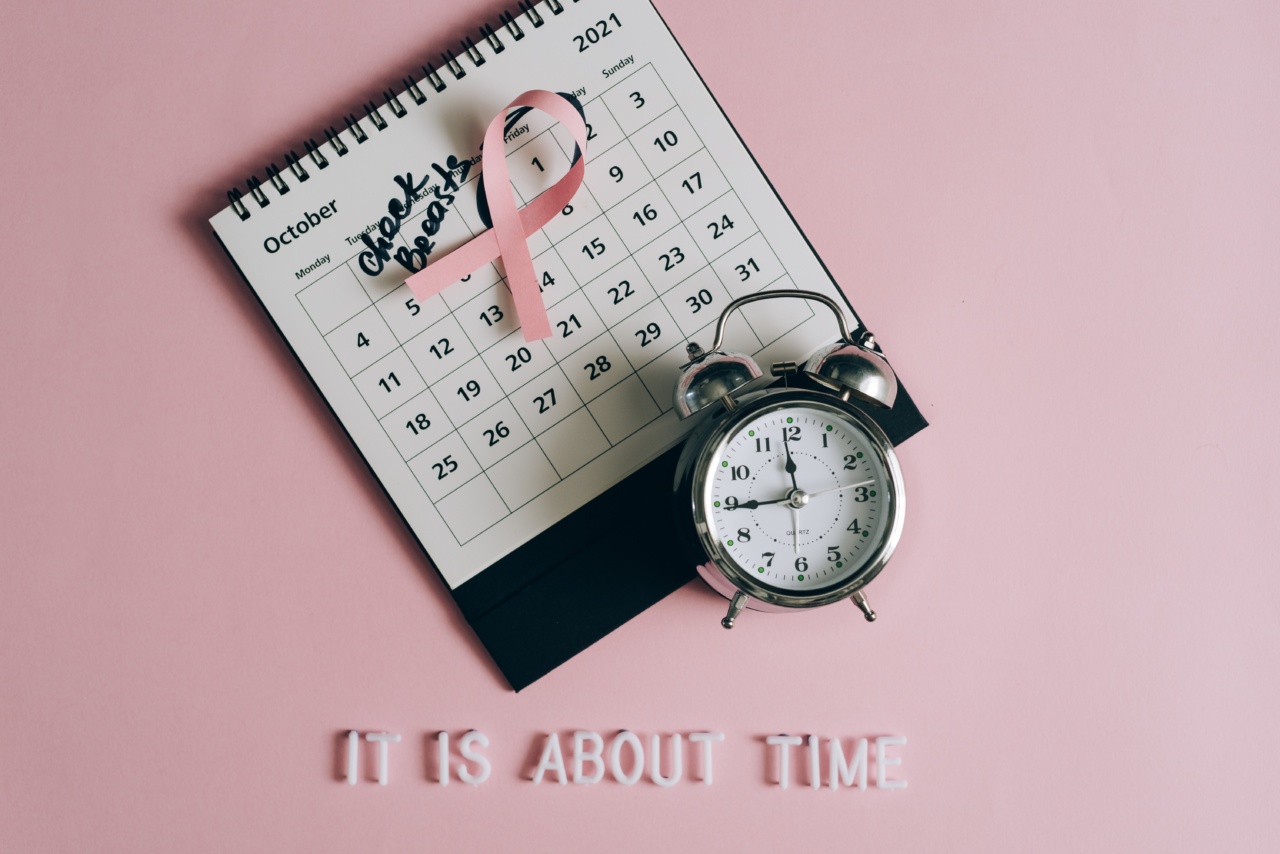Sleep is an essential biological process that is crucial for our overall well-being. It is during sleep that our bodies repair and rejuvenate themselves, allowing us to wake up feeling refreshed and ready to take on the day.
However, research has increasingly shown that poor sleep habits can have serious implications on our health, including an increased risk of developing cancer. In this article, we will explore the connection between sleep and cancer, and how your sleep habits may be contributing to this deadly disease.
The Sleep-Cancer Connection
Several studies have suggested a link between inadequate sleep and an increased risk of developing certain types of cancer.
One of the main reasons for this connection is the disruption of the body’s natural circadian rhythm, which is regulated by our sleep-wake cycle. Disrupting this rhythm can have detrimental effects on our health, including an increased risk of cancer.
Melatonin and Cancer
Melatonin, often referred to as the “sleep hormone,” is responsible for regulating sleep patterns and promoting restful sleep.
In addition to its role in sleep, melatonin also has powerful antioxidant properties and plays a crucial role in regulating immune function.
Research has shown that individuals who work night shifts or are exposed to artificial light at night, which suppresses the production of melatonin, may have an increased risk of developing certain types of cancer, including breast, prostate, and colorectal cancer.
Disrupted Sleep-Wake Cycle and Cancer
The human body follows a natural sleep-wake cycle that is regulated by our internal biological clock. Disrupting this cycle, such as through irregular sleep patterns or nighttime exposure to electronic devices, can have adverse effects on our health.
Studies have shown that individuals with irregular sleep patterns or frequent disruptions in their sleep-wake cycle may be at a higher risk of developing cancer, including breast and prostate cancer.
The Impact of Sleep Deprivation on Immune Function
Sleep deprivation can have a significant impact on our immune system, making us more susceptible to infections, diseases, and even cancer.
During sleep, our immune system releases various molecules and cells that fight off harmful substances and help prevent the development of cancerous cells. Chronic sleep deprivation can weaken our immune system, making it less efficient in detecting and eliminating cancer cells.
The Role of Sleep in Cell Repair and DNA Integrity
Sleep plays a critical role in the repair and maintenance of our body’s cells. During sleep, our cells undergo important restorative processes, including DNA repair.
When we don’t get enough sleep or have poor sleep quality, these processes can be compromised, potentially leading to DNA damage and the formation of cancerous cells.
Sleep Habits, Obesity, and Cancer
Poor sleep is also associated with an increased risk of obesity, which is a known risk factor for various types of cancer.
Lack of sleep can disrupt the balance of hormones involved in appetite regulation, leading to increased food cravings, decreased satiety, and ultimately weight gain. Obesity has been linked to an increased risk of several cancers, including breast, colorectal, and pancreatic cancer.
Shift Work and Cancer
Shift work, particularly night shift work, is known to disrupt the body’s natural sleep-wake cycle and can have detrimental effects on our health.
Numerous studies have suggested that individuals who work night shifts for extended periods may have a higher risk of developing certain types of cancer, including breast, prostate, and colorectal cancer. The disruption of circadian rhythm and decreased melatonin production due to exposure to artificial light at night are believed to be contributing factors.
Tips for Healthy Sleep Habits
Improving your sleep habits is crucial for maintaining good overall health and minimizing the risk of developing cancer. Here are some tips to promote healthy sleep:.
- Stick to a regular sleep schedule, going to bed and waking up at the same time every day, even on weekends.
- Create a sleep-friendly environment by keeping your bedroom dark, quiet, and at a comfortable temperature.
- Avoid electronic devices, such as smartphones and tablets, before bedtime, as the blue light emitted by these devices can interfere with sleep.
- Avoid consuming caffeine and alcohol close to bedtime, as they can disrupt sleep patterns.
- Establish a relaxing bedtime routine, such as reading a book, taking a warm bath, or practicing relaxation techniques.
- Engage in regular physical activity, but avoid exercising too close to bedtime, as it can be stimulating.
- Avoid large meals and excessive fluid intake late in the evening, as they may cause discomfort and disrupt sleep.
Conclusion
Your sleep habits play a crucial role in your overall health, and research suggests that inadequate sleep can contribute to an increased risk of developing cancer.
Disruptions to the body’s circadian rhythm, decreased melatonin production, compromised immune function, impaired cell repair processes, and the association between poor sleep and obesity all contribute to this connection. By prioritizing healthy sleep habits and maintaining a regular sleep schedule, you can reduce your risk of cancer and promote overall well-being.































